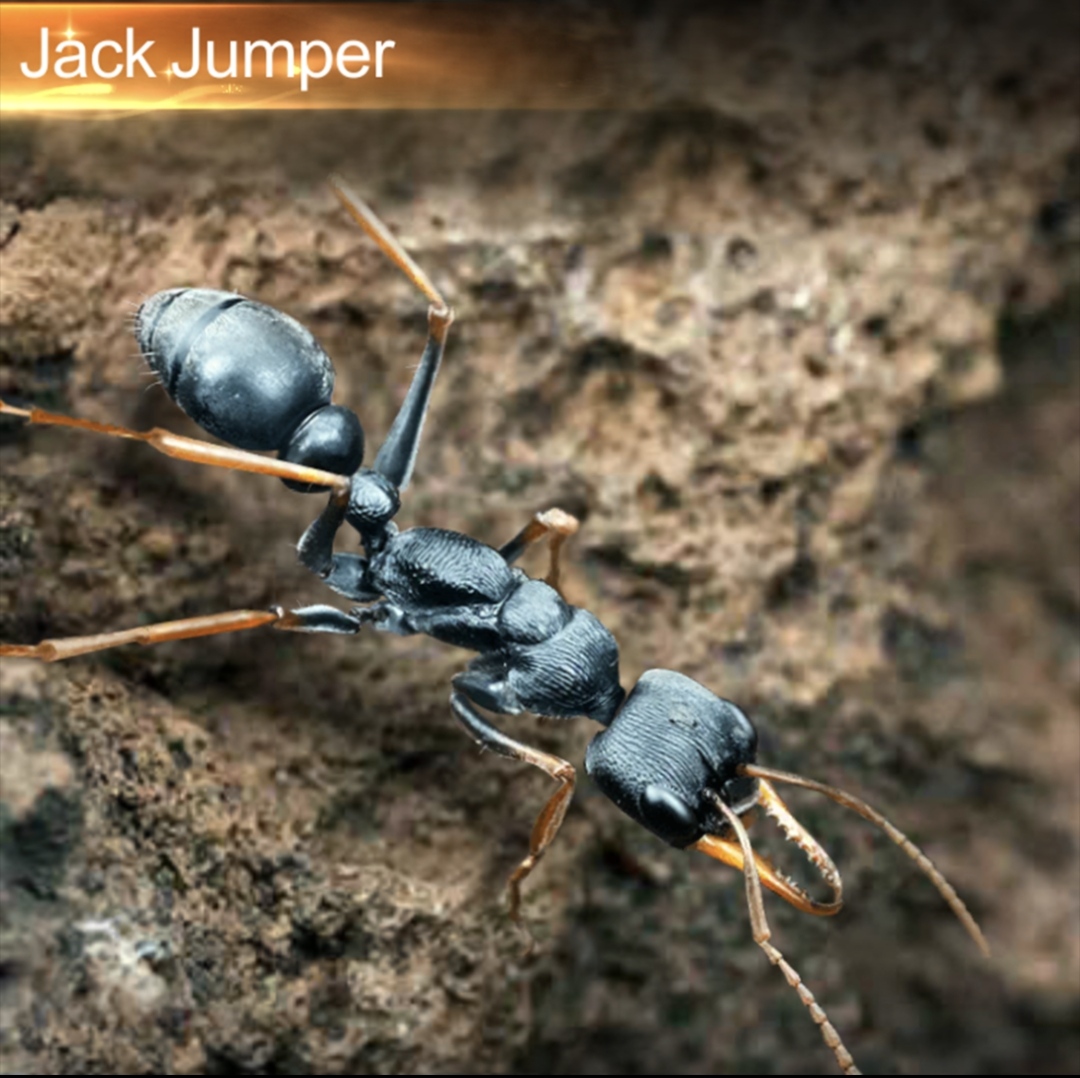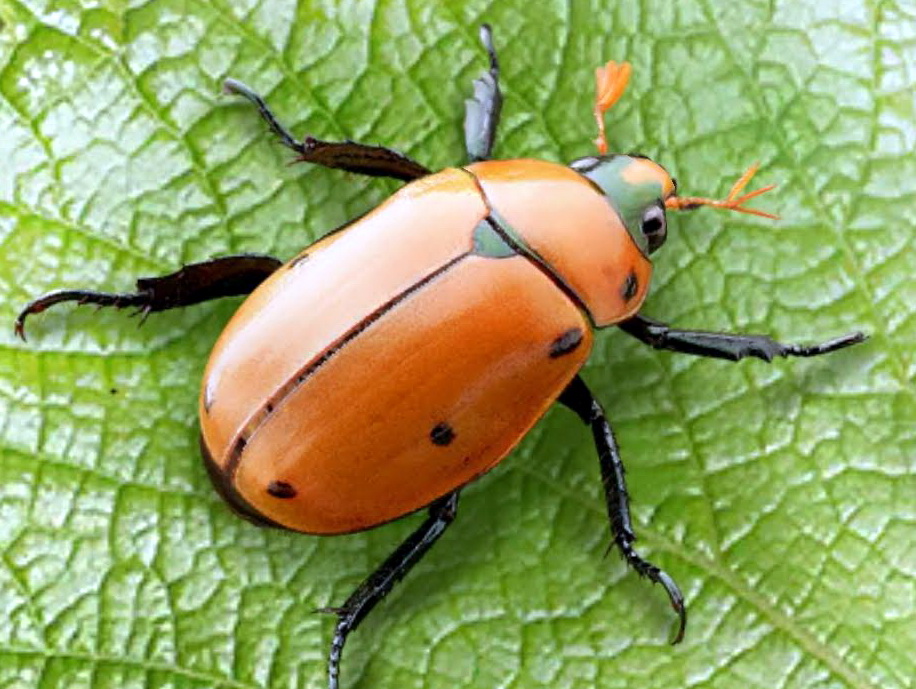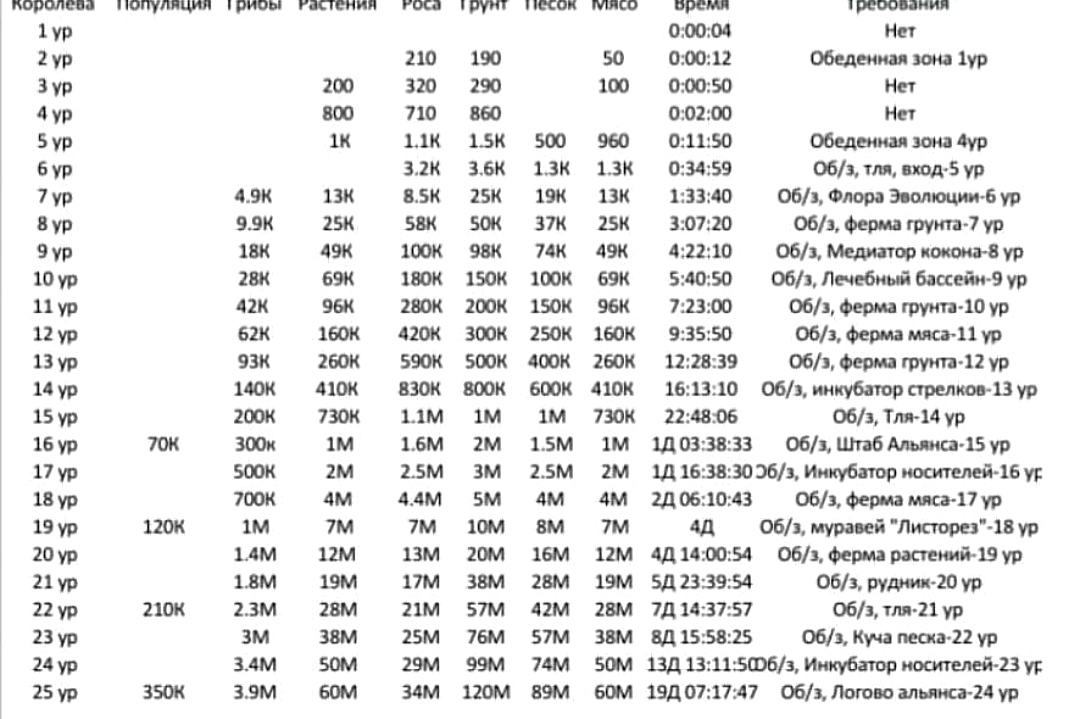? Dark Giant ?
Story:
Eciton Rapax is found in Southern America. A
close relative of the Africa Army Ants with huge
sizes. They are one of the strongest predators
among the ants.
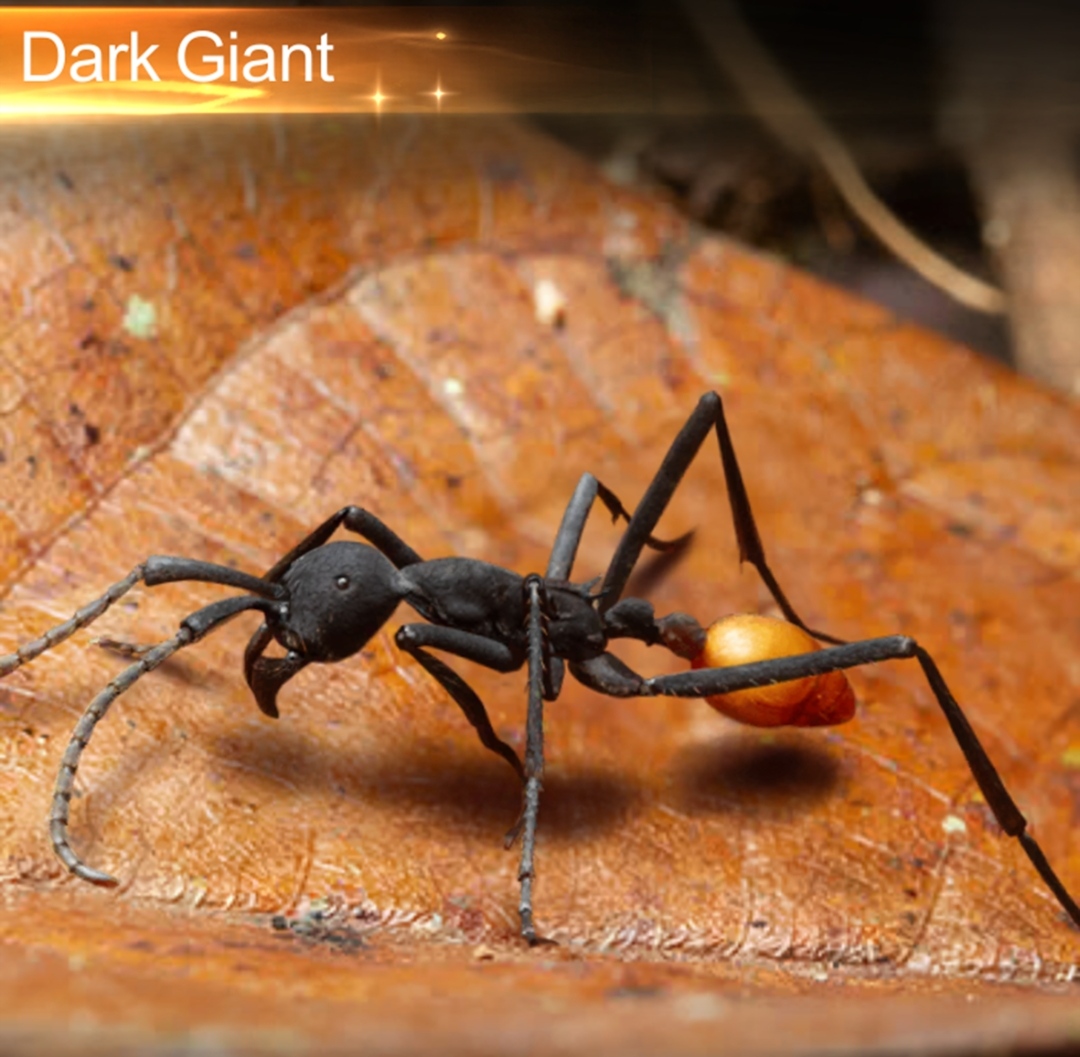
? Gold Armor ?
Story:
Daceton armigerum, found in Amazon rain forests
in northern South America, is carnivores. The size
of these ants varies between worker and soldier
ants, which soldier ant can reach up to 15-17 mm.
They don't hunt in large groups, and often hunt
alone. Their diet is very diverse, from a variety of
insects to small snails. They can not only tear their
prey with strong and powerful teeth, but also sting
and inject venom to better break down the prey.
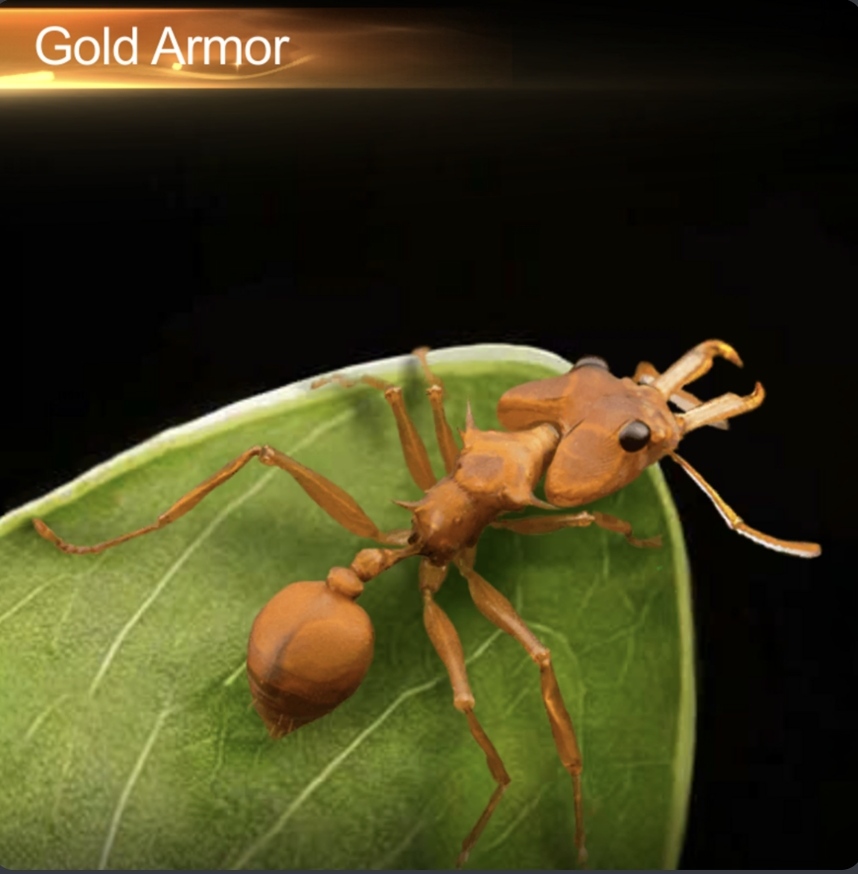
? Shikaree Master ?
Story:
It is one of the largest terrestrial true bugs in North America and some part regions in Mid-Southern
America. As agricultural beneficial insects, it's as
known as lion or falcon among all insects. They
have similar appearances as ants, somehow this
helps them to avoid many risks.
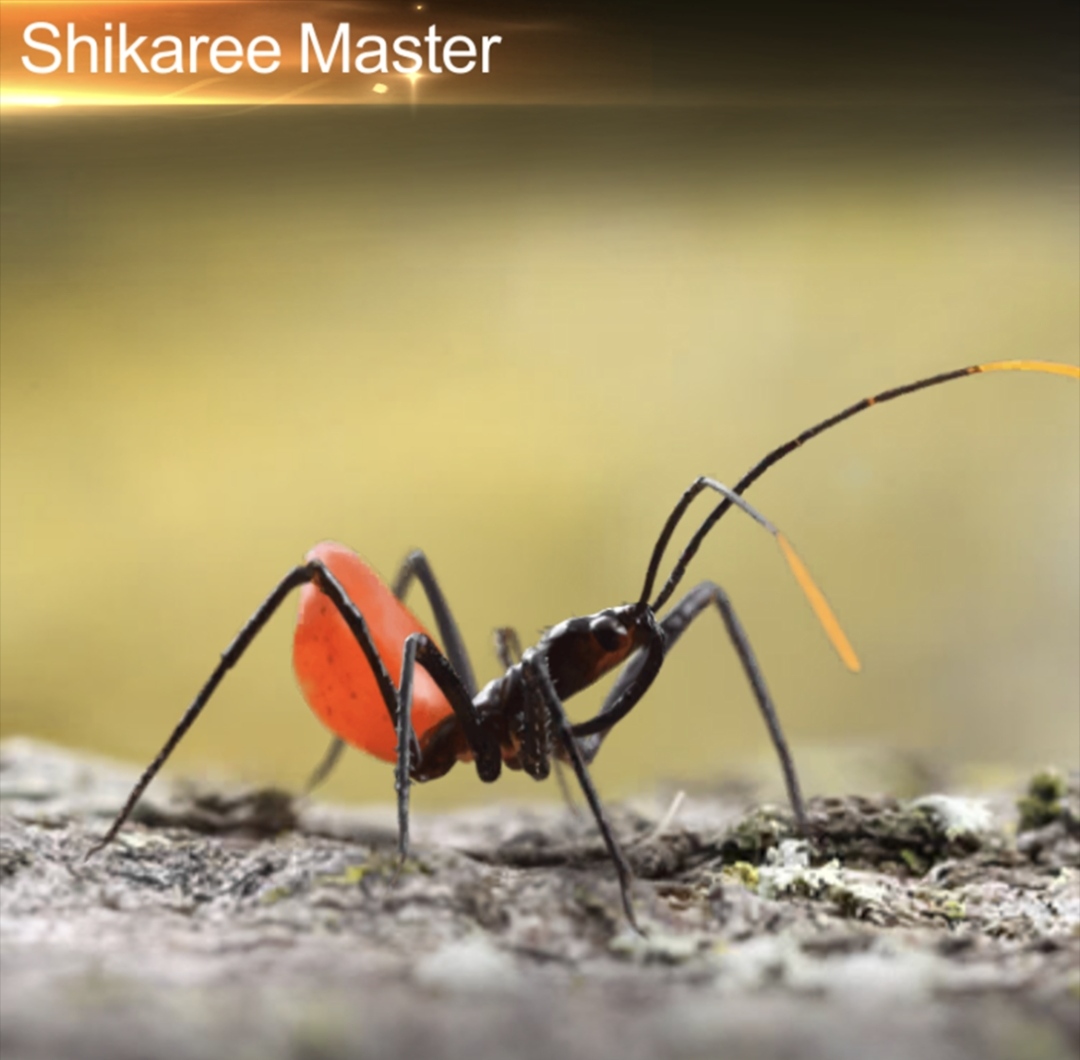
? Golden Sugar ?
Story:
Camponotus sericeiventris can be found from the
Central South America to the Southern United
States. Its size is huge, reaching from 15 mm to
16.5 mm. Its overall body surface color is normally
black with a rough texture. Its tail, abdomen and
back usually grow fine golden hairs which shine
brightly when struck by the light. When attacking,
the buttocks are lifted towards underneath its body
and formic acid is sprayed therefrom, though this
kind of attack is not usually used in hunting.
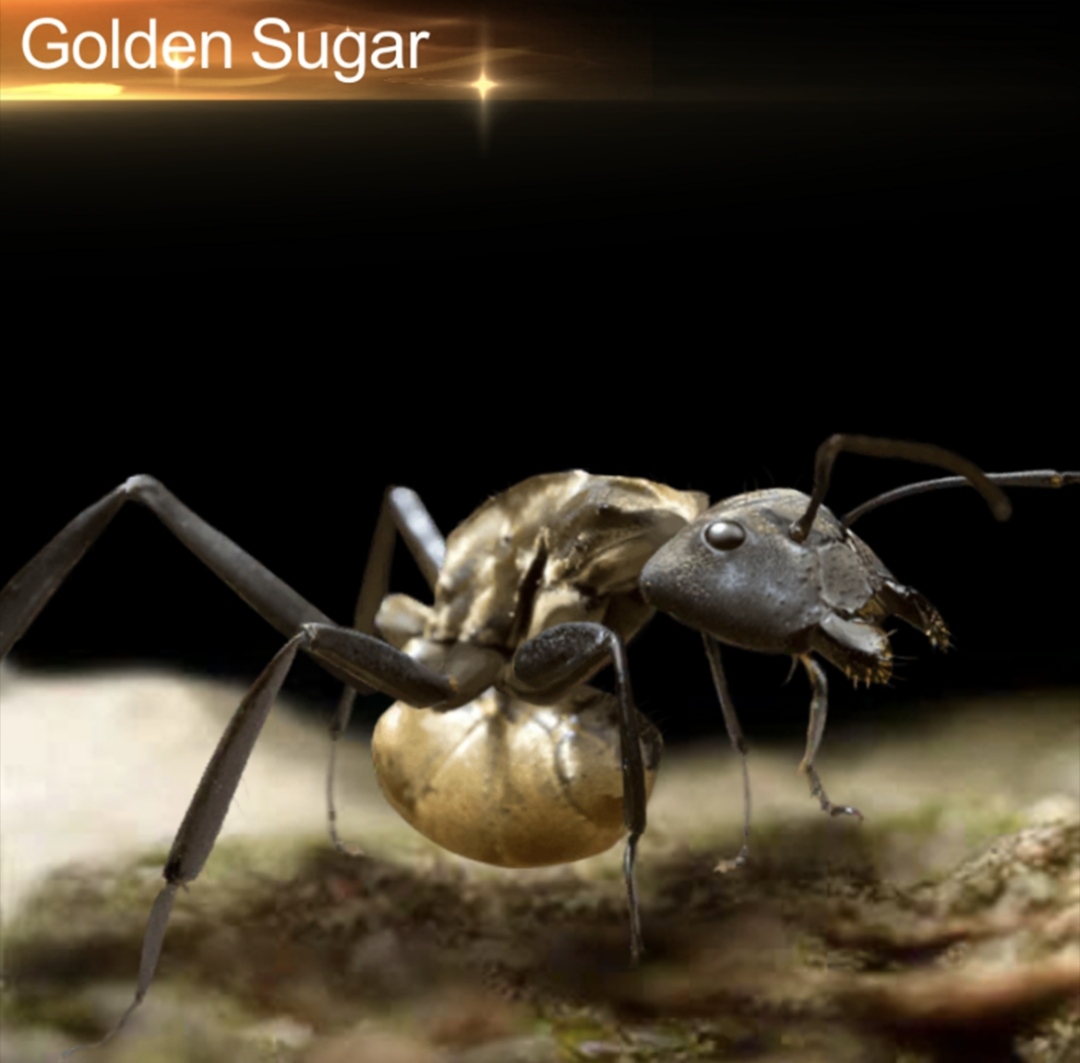
? Long Jaw Giant ?
Story:
Anocnetus paripungens is an ant species unique to Australia. They are not large, usually 5-6 mm in
length, and mainly live in rain forests and like to
nest under decaying trees. They tend to search for
food at dusk, night, and damn. They use their long
mandibles to bite their prey in a split second with great success.
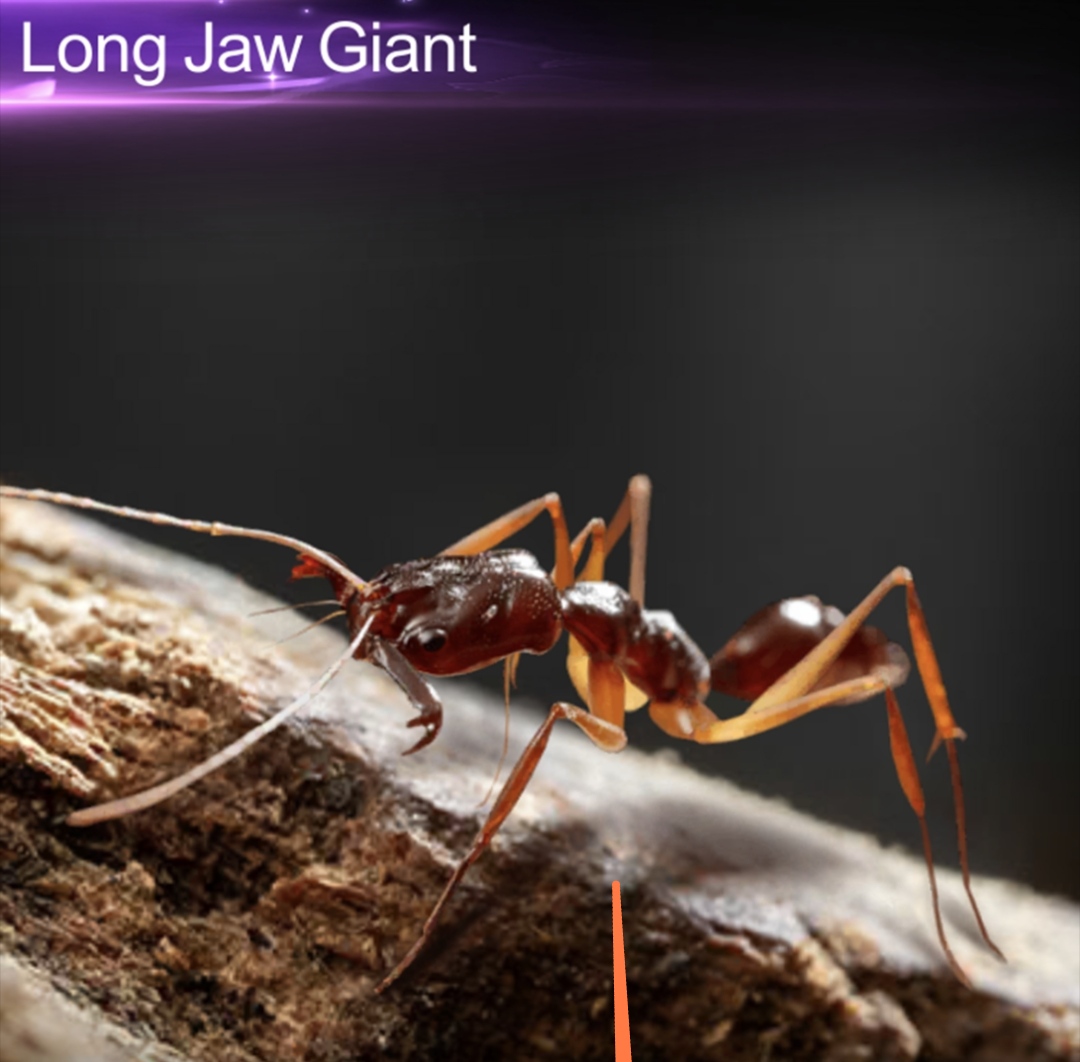
? Slim Arched ?
Story:
Camponotus mirabilis is only found in parts of the
northern South America, and is called the ghosts
of the Amazon rain forests. Their heads are long
and flat, and their bodies are huge, reaching more
than 12 mm. They nest in the local bamboo by
drilling holes into the bamboo joints while the bamboo is still immature and the surface is not yet
hard. As the bamboo grows, these holes form
natural nesting chambers. They normally breed
aphids in the bamboo joints to gather honeydew as
their food, but will occasionally also prey on other insects.
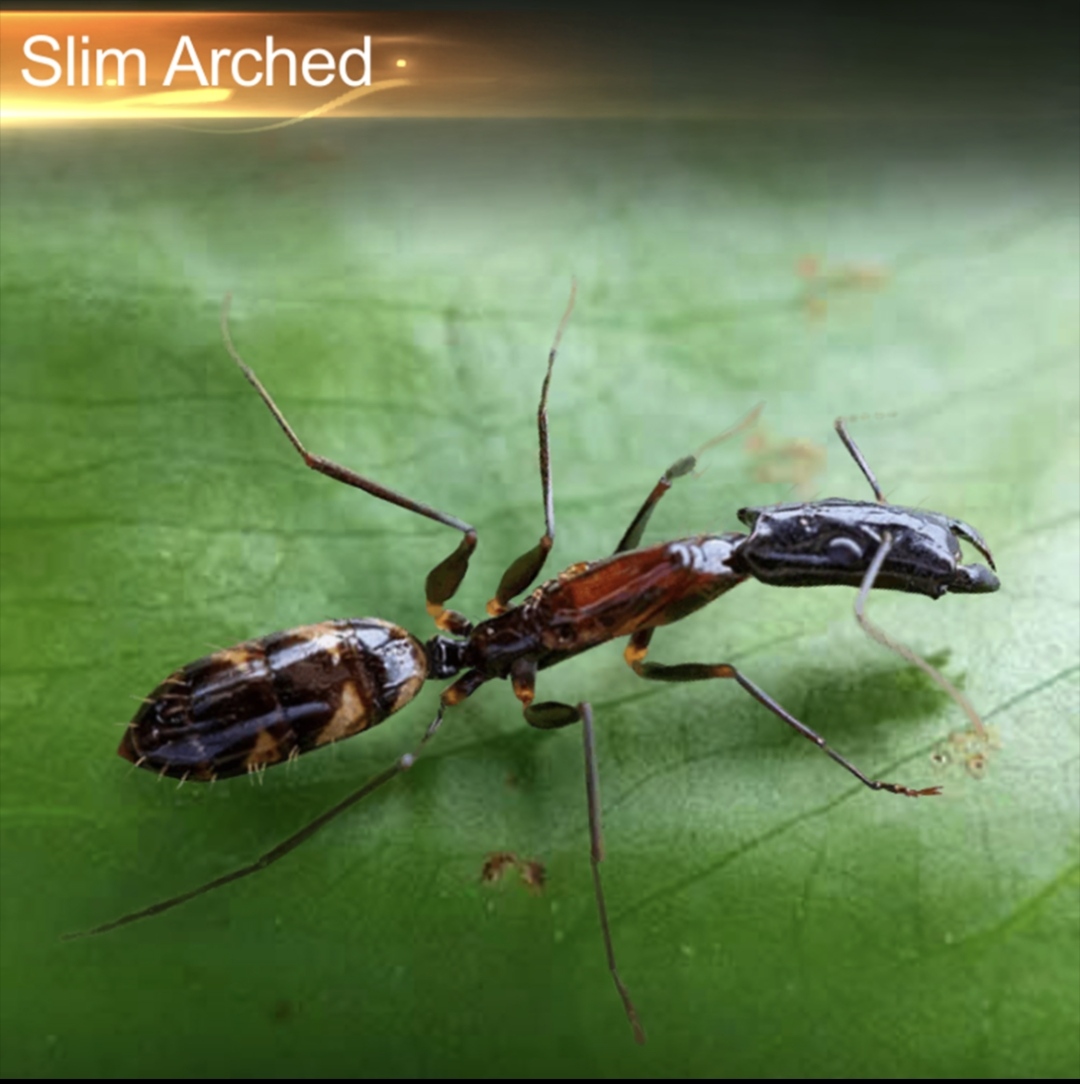
? Mimicry Master ?
Story:
Found in some particular regions of South America, a special species of insect. This species
usually mimic ants to get better living
environments. Looks like the Camponotus
Sericeiventris.
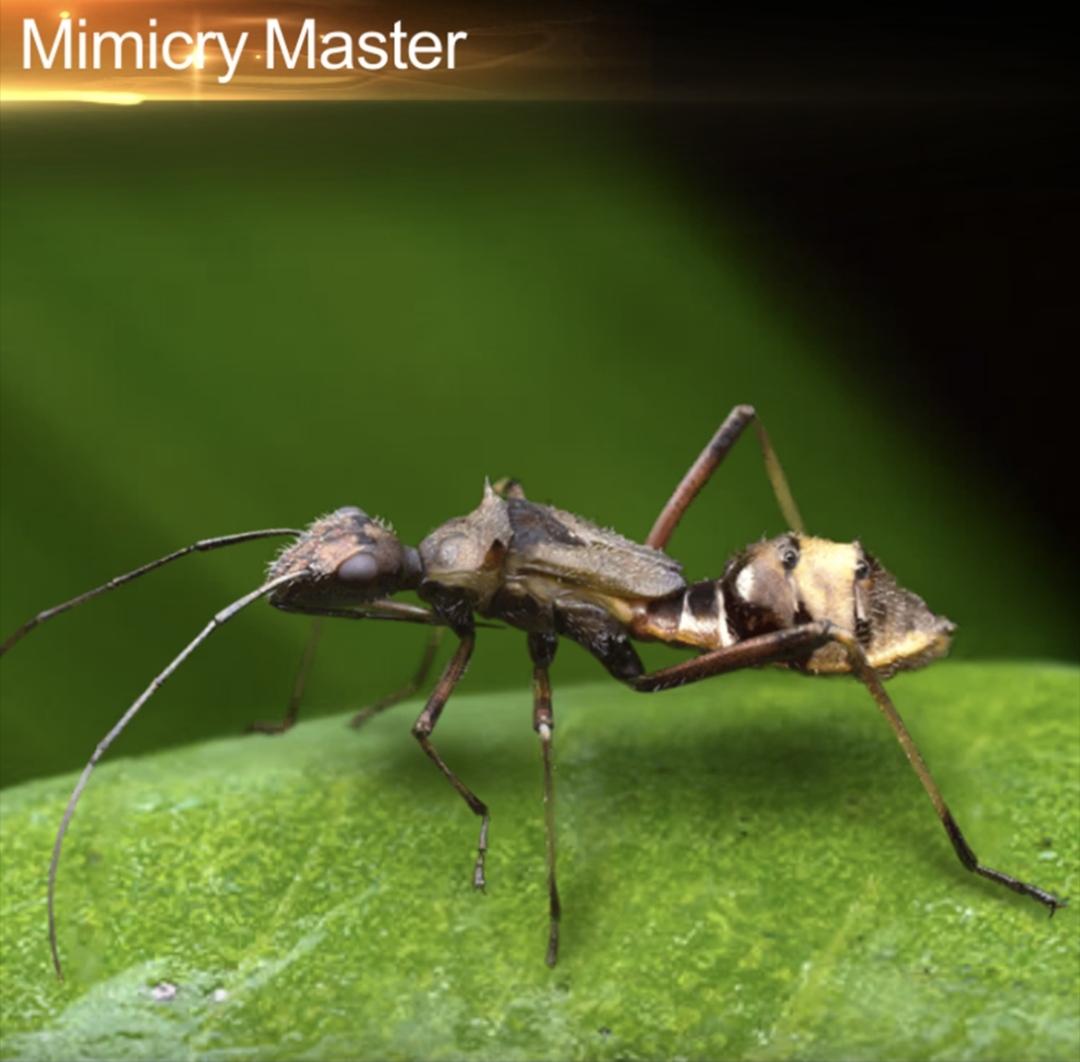
? Black Cancer ?
Story:
Found in Paraguay, Brazil, Argentina, and
Panama. Aphantochilus is a genus of
ant-mimicking crab spiders. One of the best
species in mimicking ants. Survive by eating ants.
Have similar sizes and appearances as ants. It's
one of the main natural predators of local ants.
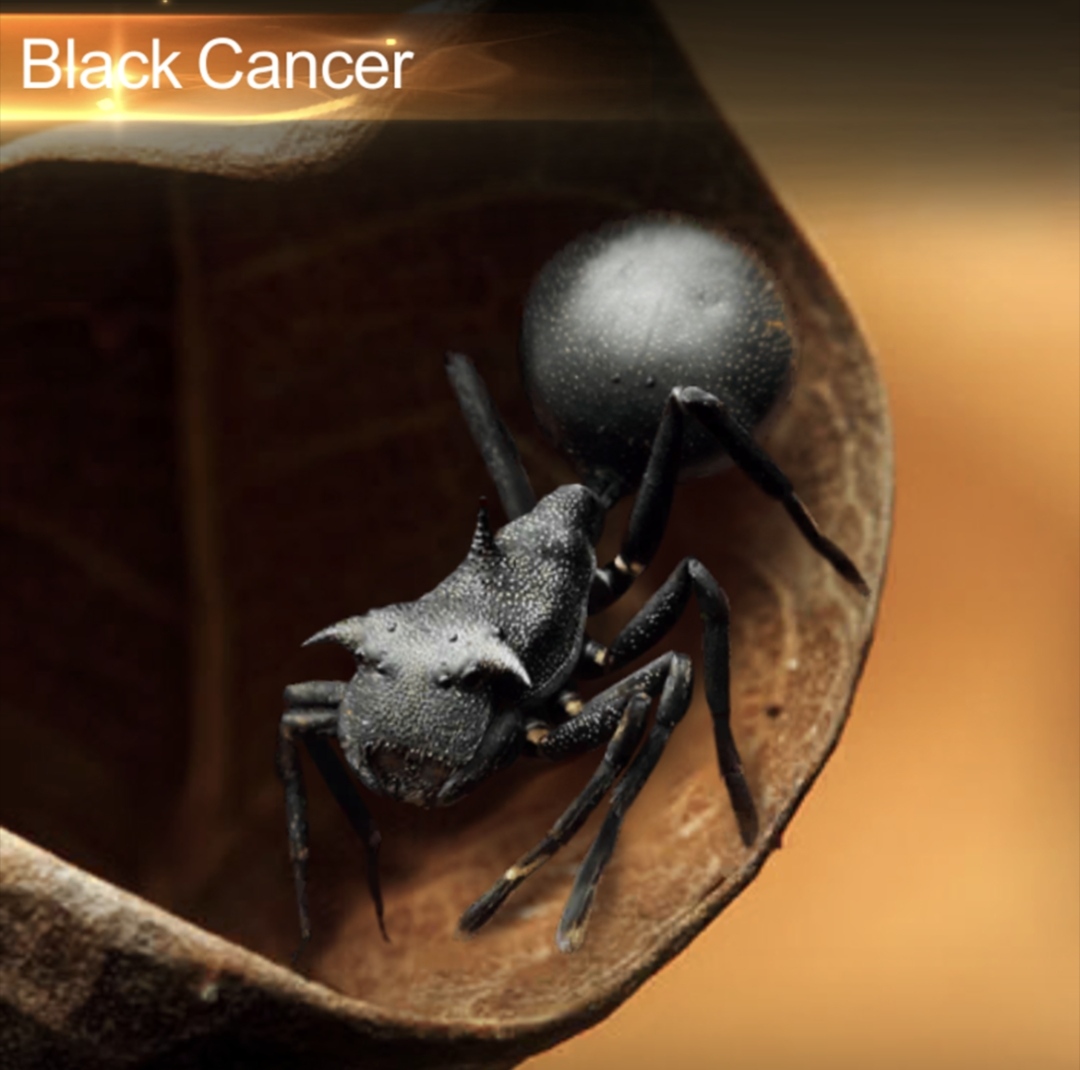
? Rock Bandit ?
Story:
Found in southern regions of South America and
Mexico. Prefer to build their nests under rocks.
They have small size bodies. Sometimes they
would occupy Atta Leafcutter ants'nests as their own.
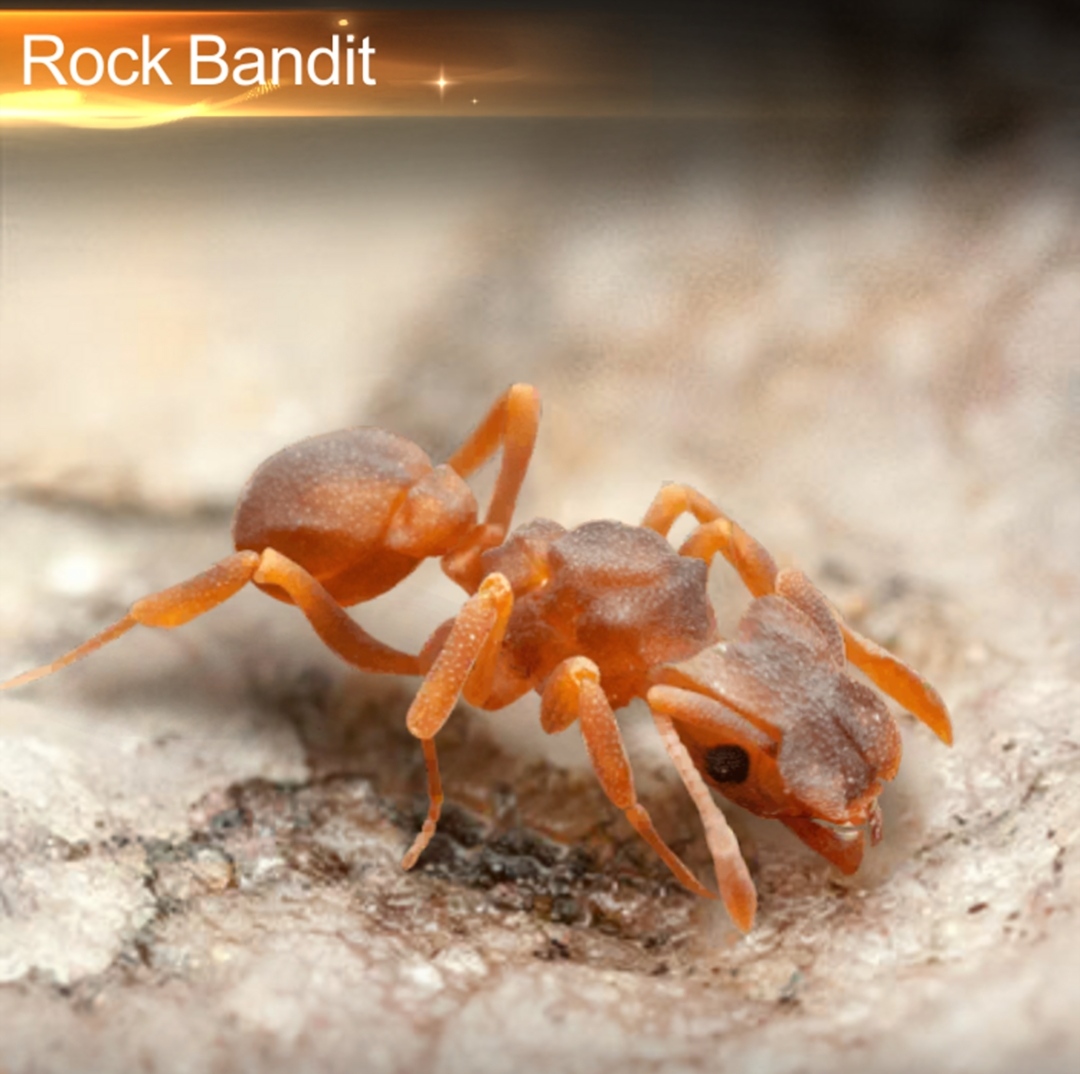
? Muscleman ?
Story:
Podomyrma adelaidae, one type of leafcutter ants
endemic to Australia, is easily recognized by the
two yellow-white spots on its tail. They are large,
6-7 mm in length, aggressive and energetic. They
prefer to nest in decaying tree cavities and often
climb up the branches of eucalyptus trees to feed on them.
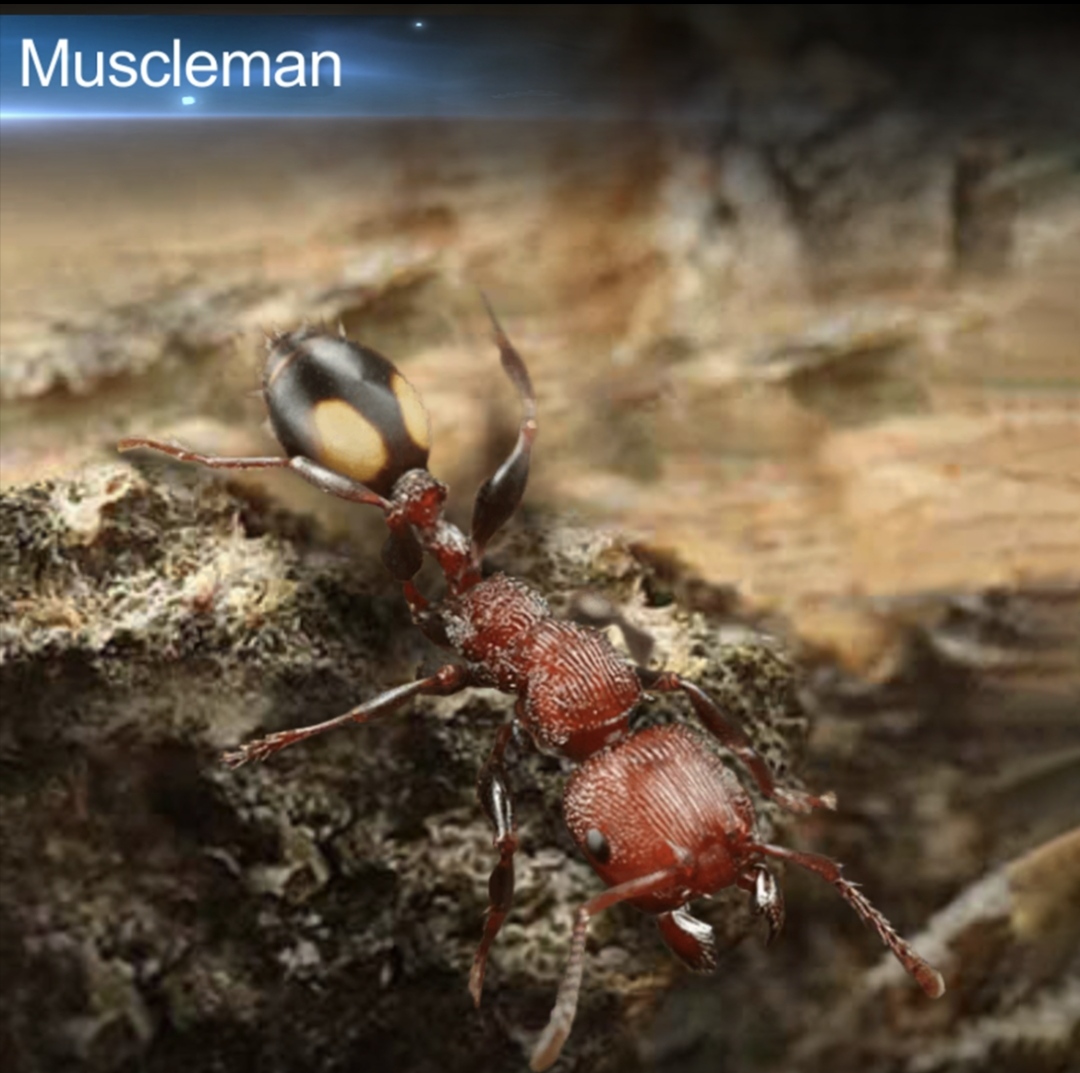
? Giant Tooth ?
Story:
Odontomachus coquereli, mostly found in the
African part of Madagascar, is usually about 12
mm in length. They have two saw-shaped teeth
and a mandible which can stretch 180 degrees
when fully opened. Also, their mouth can be fixed
in an open position due to the unique internal structure where they have a pair of antennas for
sensing. When prey touches these antennas, their
mouth closes immediately. Fast and powerful, it
can cripple or even kill the prey instantly. At the same time, they can also use airflow generated by
the rapid closure of the mouth to bounce
themselves to avoid being attacked or get rid of
enemies chasing them.
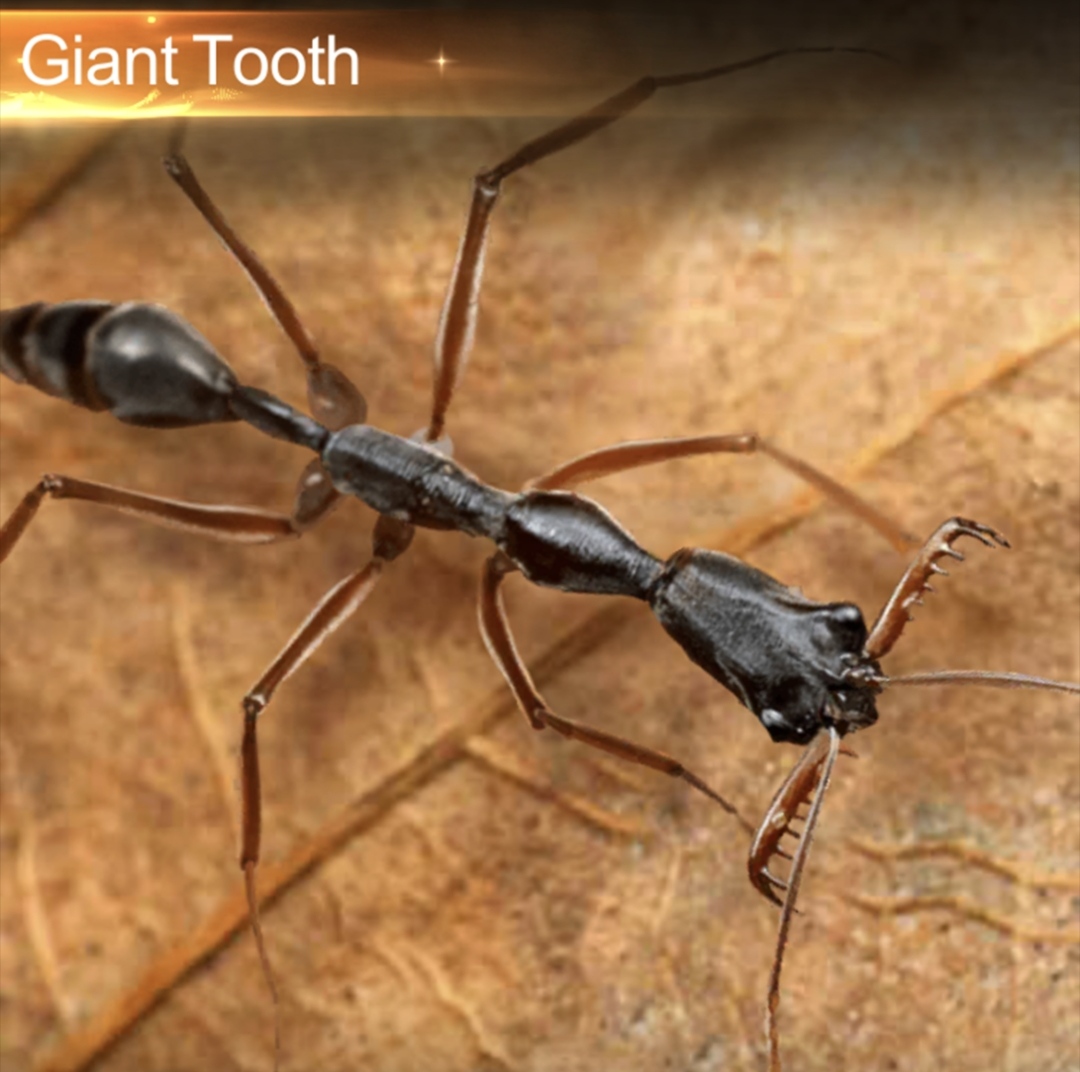
? New World General ?
Story:
Eciton burchellii, found in Peru all the way to
Mexico, is one of the world's most widely known,
and most scary, army ants. There is a huge
difference between worker ants and soldier ants
within this genus. The soldier ants have huge, long
teeth. Their tall, strong bodies are over ten times
the size of the average worker ants, which could
reach 8-10 mm. They do not have a fixed nest, and
the whole colony is always on the march. The
huge colony of millions of ants can hunt almost any
creature. So, you'd better run away as soon as
possible when you see them.
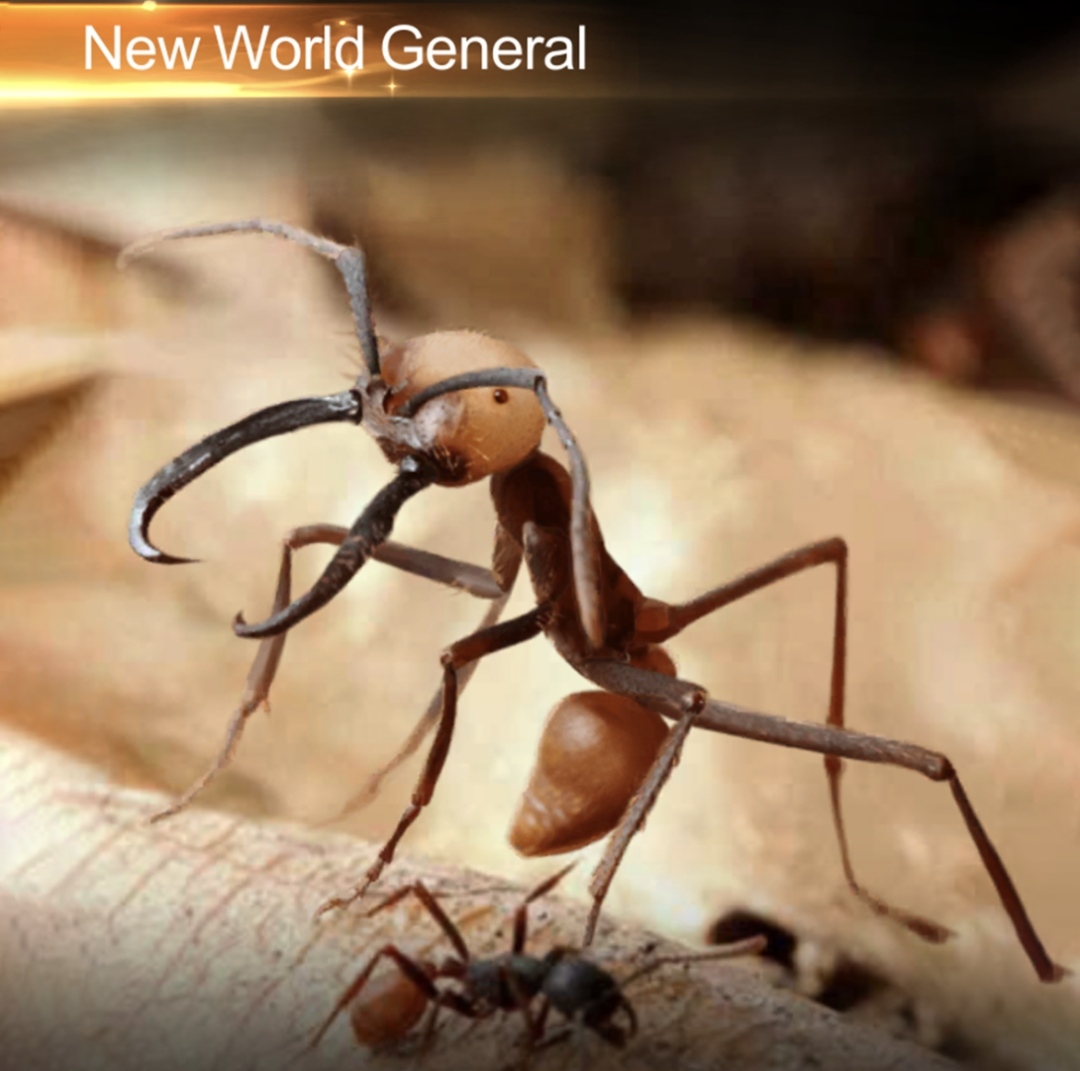
? Jack Jumper ?
Story:
Myrmecia Pilosula, also known as Velvet Ant but more widely known as "Jack Jumper Ant", is the scariest ant species on the Australian continent.
They are very large and can reach 12-14 mm.
They have venomous stings that contain a
neurotoxin. Some have allergic reactions and their lives may be danger when exposed to this neurotoxin. They mainly feed on small insects which they hunt by injecting venom, and they also gather honeydew. They have the best jumping ability among all the ants in the world, and their strong hind legs effectively increase the success rate of hunting.
